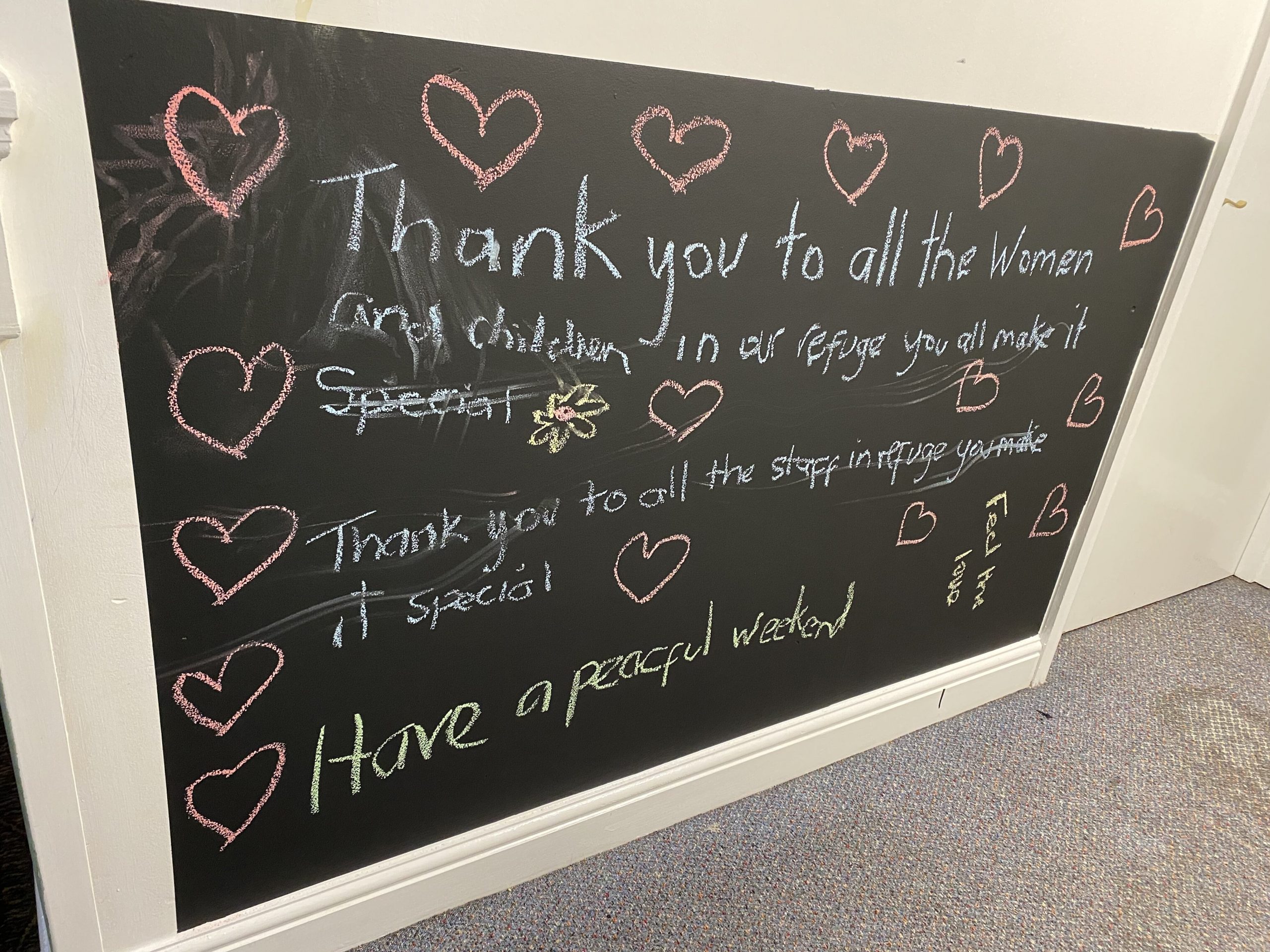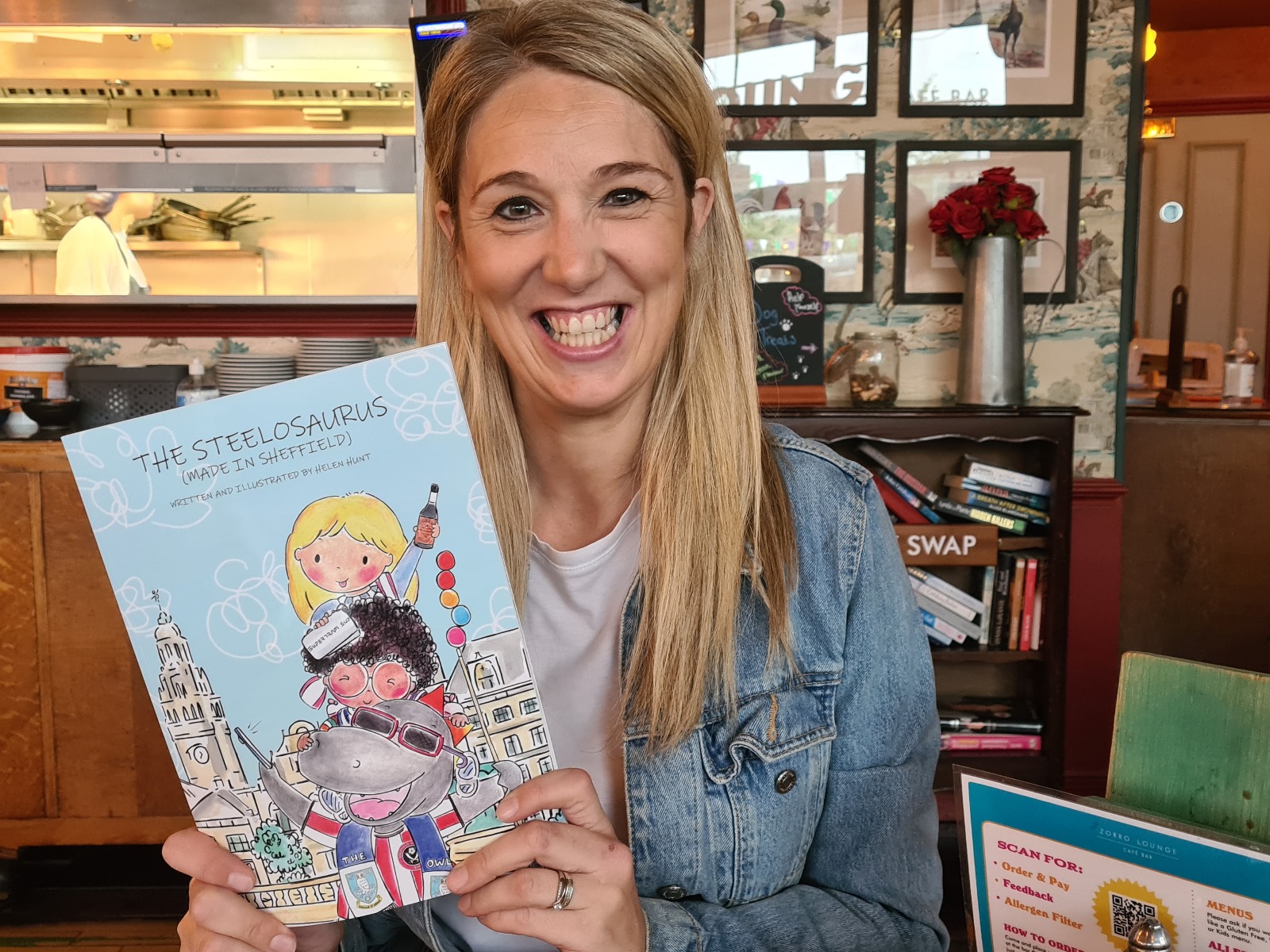A national support fund of £125 million has been announced by the government to support domestic abuse victims.
Hollie Venn, CEO of Women’s Aid Sheffield is delighted that Sheffield City Council have been allocated around £1.3 million of the money.
This provision of these services is vital for the wellbeing of women and children, Ms Venn added: “it gives them a safe space to be able to cope and a period of reflection, and a safe space to be able to recover from the trauma.”

Thought board in the women’s refuge
Ms Venn said: “The core funding we get from the council is really valuable because it makes sure that there’s refuge there in the first place. And then the additional funding that comes in means that we can add on even greater support.”
With the additional funding, Sheffield Women’s Aid can provide parenting support work and extra hours for children’s support.
Sheffield Women’s Aid helps 37 women and any children they may have, at any given time through providing emergency accommodation in their two refuges.
In 2021, they supported over 130 survivors.
Ms Venn added that this was of paramount importance since children are now officially recognised as victims under the Domestic Abuse Act. The council support to Sheffield Women’s Aid and IDAS means they can provide essential day-to-day services.
Sheffield Drug and Alcohol/Domestic and Sexual Abuse Co-ordination Team (DACT) and the council commission domestic abuse services. Some of the money is likely to go to DACT survivors group. This group is made up of people with lived experiences who help shape the way services are designed, commissioned and managed.
Domestic abuse services for accommodation in Sheffield will soon be going out to tender. This means SWA must prove they are providing the council the most cost-effective service to regain a 3-5 year contract. If this contract is renewed it provides Sheffield Women’s Aid with more stability.
The government also announced they are opening a consultation on the local connection requirement. As it stands, if someone from Newcastle fled to Surrey for their own safety, local authorities can deny them refuge for not having a local connection. The removal of this will make it easier for women to seek refuge across the country.
Another consultation will look into making it easier for for women to leave joint tenancies they’re locked into with their abusers. It will also mean they can takeover the tenancy and remain in the property and their abuser can be removed.
Covid lockdowns highlighted the severity of domestic abuse a survivors weren’t able to escape to a safe place. It pushed an issue often hidden behind closed doors to the forefront of public debate.
Ms Venn has credited the success of new Domestic Abuse legislation in the UK to the work within the feminist sector. They raised awareness for the need of the Domestic Abuse Act which evolved from the Domestic Abuse Bill. Campaigning also prompted the creation of a domestic abuse commissioner.
The main challenge to the sector is the precarious nature of short-term funding from central government. Ms Venn can’t plan well for the long term, for example, she cannot give out long-term work contracts
She said: “I think it’ll be interesting to see all the legislation that’s come out as part of the Domestic Abuse Act and how that will work its way down to local areas.
There appears to be the right words and deeds coming from government.”




